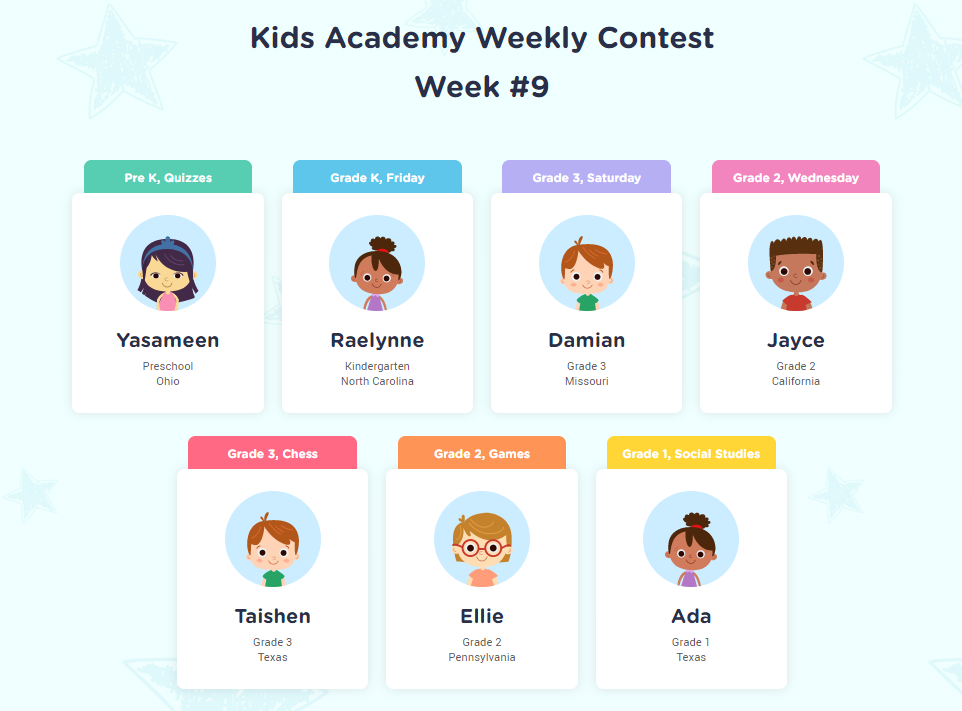Understanding Quantities Easy Worksheets for 6-Year-Olds
6 filtered results
-
From - To
Discover our "Understanding Quantities Easy Worksheets for 6-Year-Olds," designed to make learning fun and accessible! These engaging resources help young learners grasp fundamental concepts of quantity and number comparison through interactive exercises. Ideal for non-stressful practice, our worksheets feature vibrant illustrations and age-appropriate activities that cater to diverse learning styles. Kids will explore counting, number ordering, and comparisons while building a solid foundation in math. Perfect for home or classroom use, these worksheets support early education and foster a love for learning. Start your child's mathematical journey today with our easy-to-use and beautifully designed worksheets!
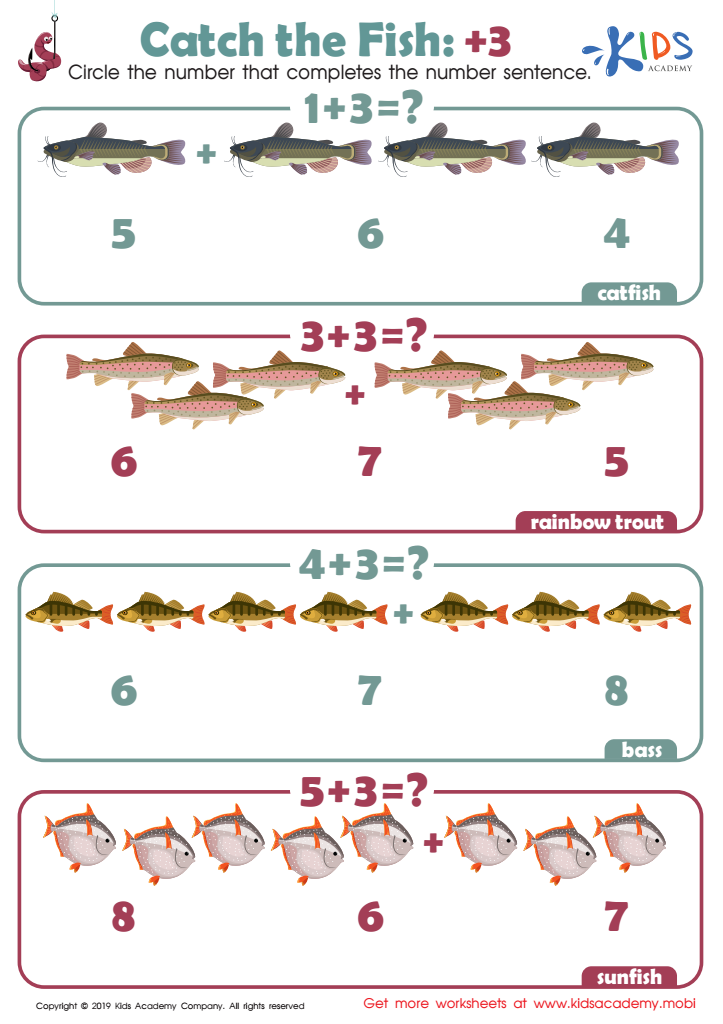

Catch the Fish: +3 Worksheet
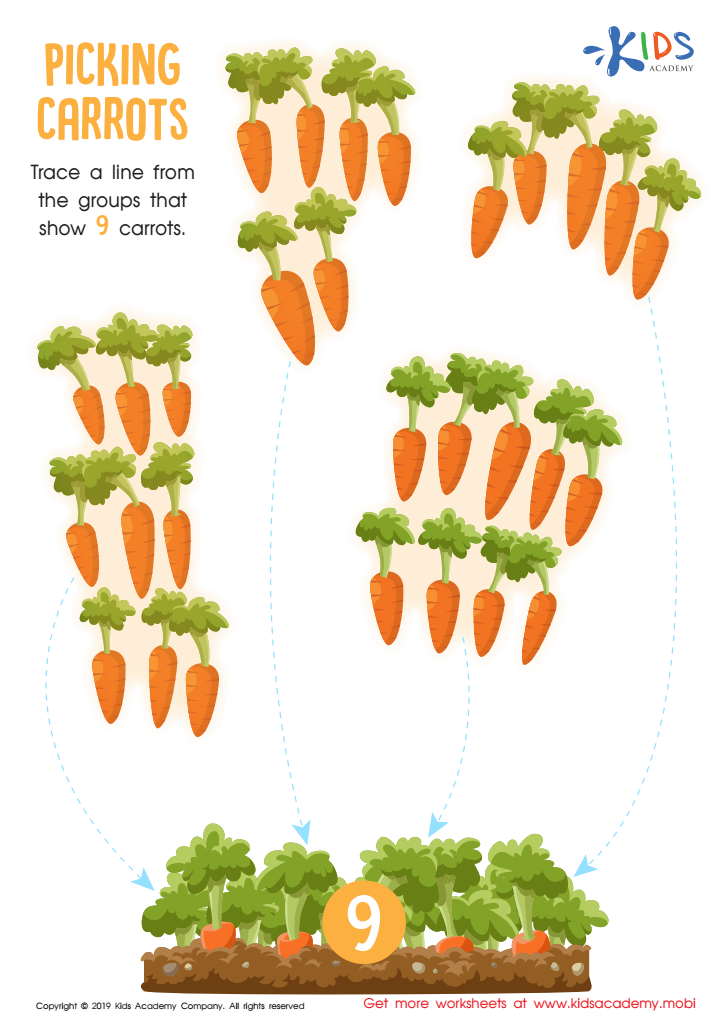

Picking Carrots Worksheet
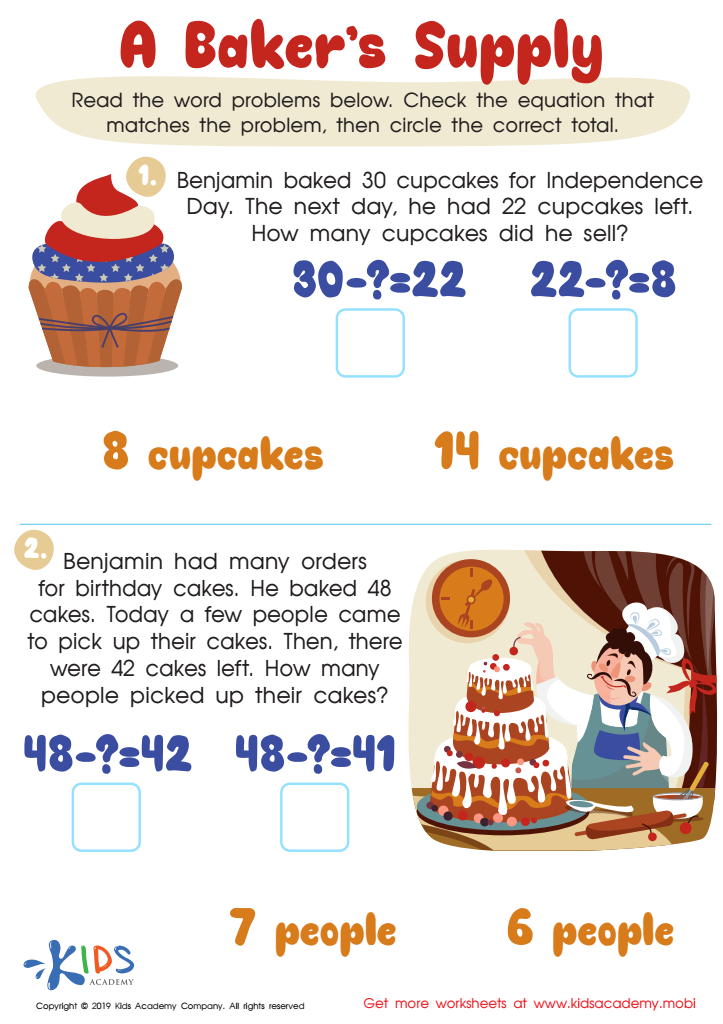

A Baker's Supply Worksheet
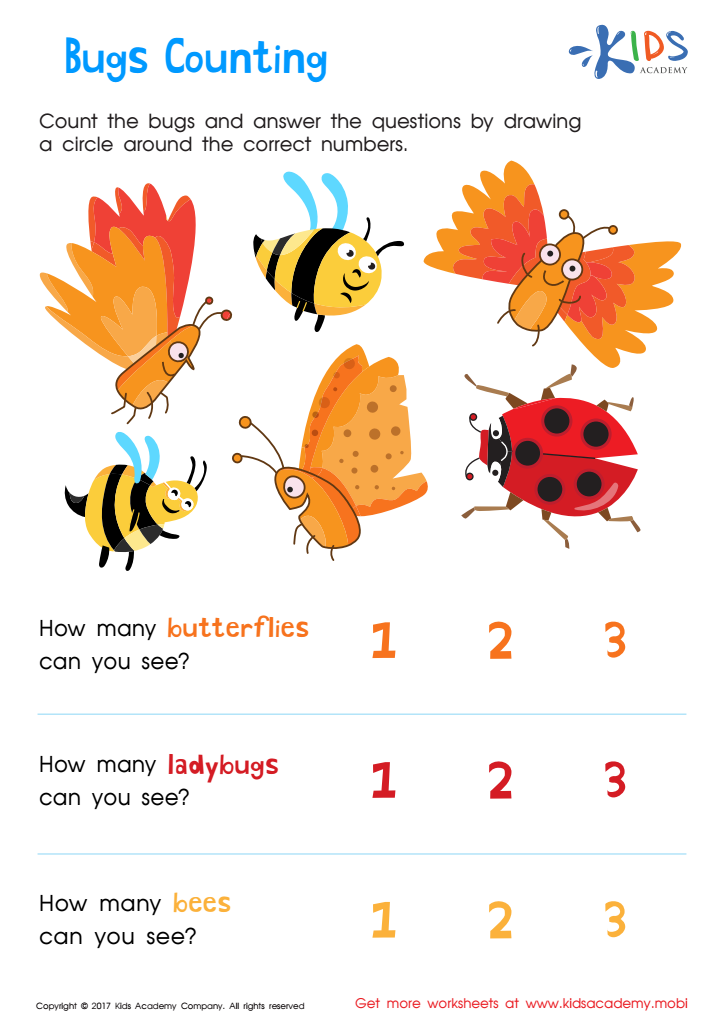

Bugs Counting Worksheet
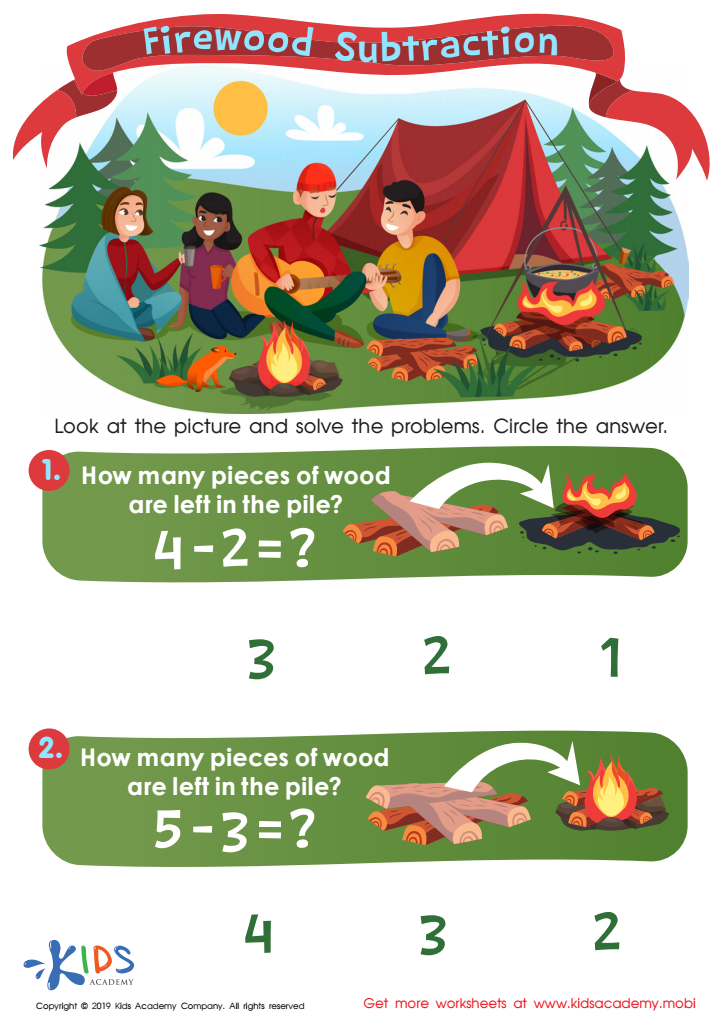

Firewood Subtraction Worksheet
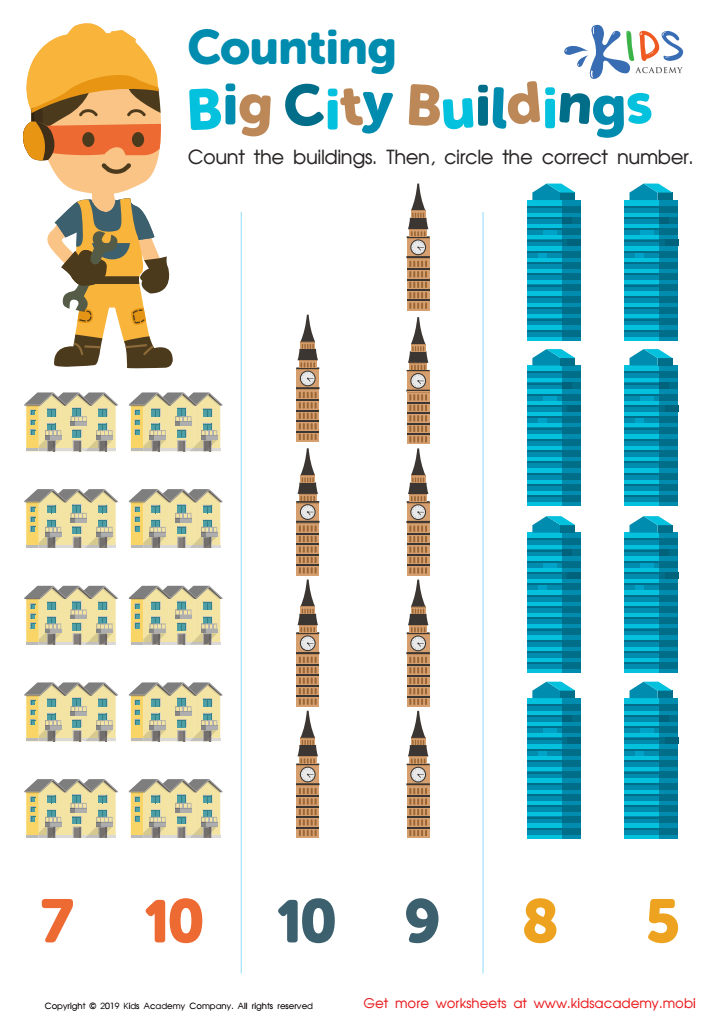

Counting Big City Buildings Worksheet
Understanding quantities is a fundamental concept that greatly impacts a child's long-term math proficiency and overall cognitive development. For parents and teachers, ensuring that 6-year-olds grasp this concept is crucial for several reasons.
Firstly, a solid foundation in understanding quantities empowers children with critical problem-solving skills. It enables them to make sense of the world around them—whether counting toys, comparing amounts, or engaging in basic addition and subtraction. This early understanding serves as a bridge to more complex mathematical concepts later on, enhancing their confidence in academics.
Secondly, nurturing skills related to quantities fosters logical thinking and reasoning. It encourages children to think critically about their decisions and encourages a sense of inquiry, which can lead to a lifelong love for learning.
Additionally, the ability to comprehend quantities promotes not just academic success but practical life skills as well. Children learn to manage resources, understand basic economics through simple exchanges, and develop patience and resilience when faced with challenges.
Ultimately, parents and teachers should invest time and resources into enhancing young children's understanding of quantities, as it sets a strong foundation for lifelong learning and success in various life areas.
 Assign to My Students
Assign to My Students






